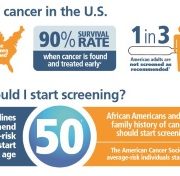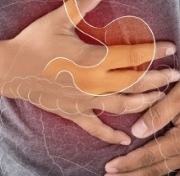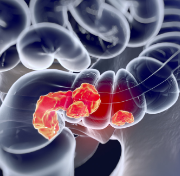Understanding Crohn’s Disease
Crohn’s disease is an inflammatory bowel disease that causes inflammation in the digestive tract. Crohn’s can occur in any area of the digestive tract from mouth to anus, but most often affects the lower small intestine.
Here’s what you need to know about Crohn’s Disease.
Causes and Risk Factors
The cause of Crohn’s disease isn’t fully understood. It may be due to an abnormal immune response to a microorganism, where the immune system injures cells in the digestive tract. Heredity may also be a cause, as Crohn’s is more common for people with a family history of the disease. However, most people with the disease do not have a family history of it.
There are some risk factors for Crohn’s that are important to be aware of too. Age plays a role- you are most likely to develop Crohn’s before the age of 30. Smoking can cause Crohn’s to increase in severity. Using NSAID’s like ibuprofen can cause inflammation in the bowels and worsen symptoms. Higher fat and processed foods seem to increase the odds of developing Crohns. Having a family member with Crohn’s is a significant risk factor as well- around 1 in 5 people with a family history of Crohn’s disease will develop it themselves.
Symptoms
As a chronic disease, Crohn’s often affects people differently over time. Flare-ups and periods of remission are common. Disease severity varies widely, with cases ranging from mild to severe. In severe cases, Crohn’s can affect multiple layers of the intestine, while other times some layers may remain healthy.
Some of the most common symptoms are persistent diarrhea, abdominal pain, rectal bleeding, an urgent need to defecate, weight loss, and a loss of appetite. More severe complications may develop from the disease. These include anal fissures, strictures, and fistulas. Crohn’s disease also increases the risk of colon cancer.
Diagnosis
Crohn’s disease is usually diagnosed after a process of ruling out other explanations for symptoms. Diagnostics are done through several types of testing. Blood tests can check for anemia or infection. A colonoscopy can provide a view of the colon and give the opportunity for tissue samples doctors can check for clusters of inflammatory cells. Additionally, an MRI, CT scan, capsule endoscopy, or balloon-assisted enteroscopy may be pursued depending on the situation.
Treatment
Treating Crohn’s centers on reducing inflammation, increasing periods of remission, and decreasing flare-ups. Treatment plans vary based on each person’s situation. Several types of medication can help decrease inflammation, including aminosalicylates, corticosteriods, immunomodulators, and biologic therapies. Many of these medicines decrease inflammation by targeting and reducing aspects of the immune system. Another type of treatment for more severe Crohn’s is bowel rest. This can entail intravenous (IV) nutrition or a feeding tube over the course of days or weeks.
Surgery is another common treatment for people with Crohn’s disease. While surgery won’t cure the disease, it can significantly improve symptoms and decrease complications. Surgical procedures can treat fistulas, internal obstructions, and life-threatening bleeding. Some procedures can even remove part of the small or large intestine. Sometimes patients need to have their entire colon and rectum removed through a surgery called a proctocolectomy. During this procedure, surgeons also create an opening in the abdomen called a stoma. A removable collection pouch (called an ostomy pouch) then collects stool outside of the body.
While there is no cure for Crohn’s, there are a multitude of ways medical professionals can help people manage the disease and live healthier lives.
Our experienced team at GHP has years of experience helping patients manage and treat Crohn’s disease. We can help you establish the best plan of care for your situation. Contact any of our office locations to learn about the options we offer and schedule an appointment today.













